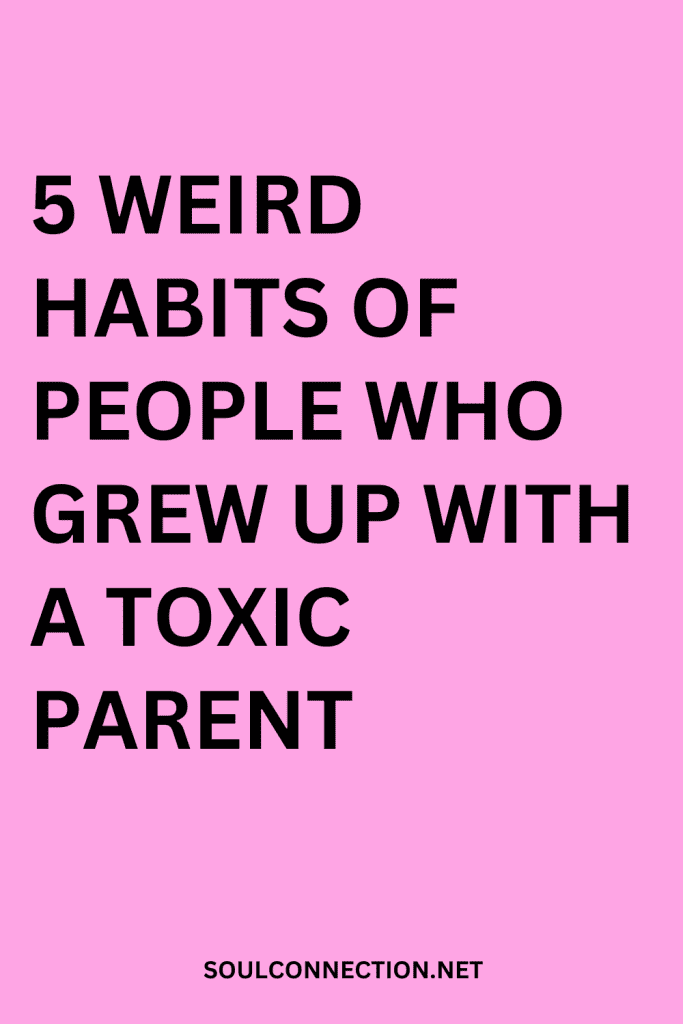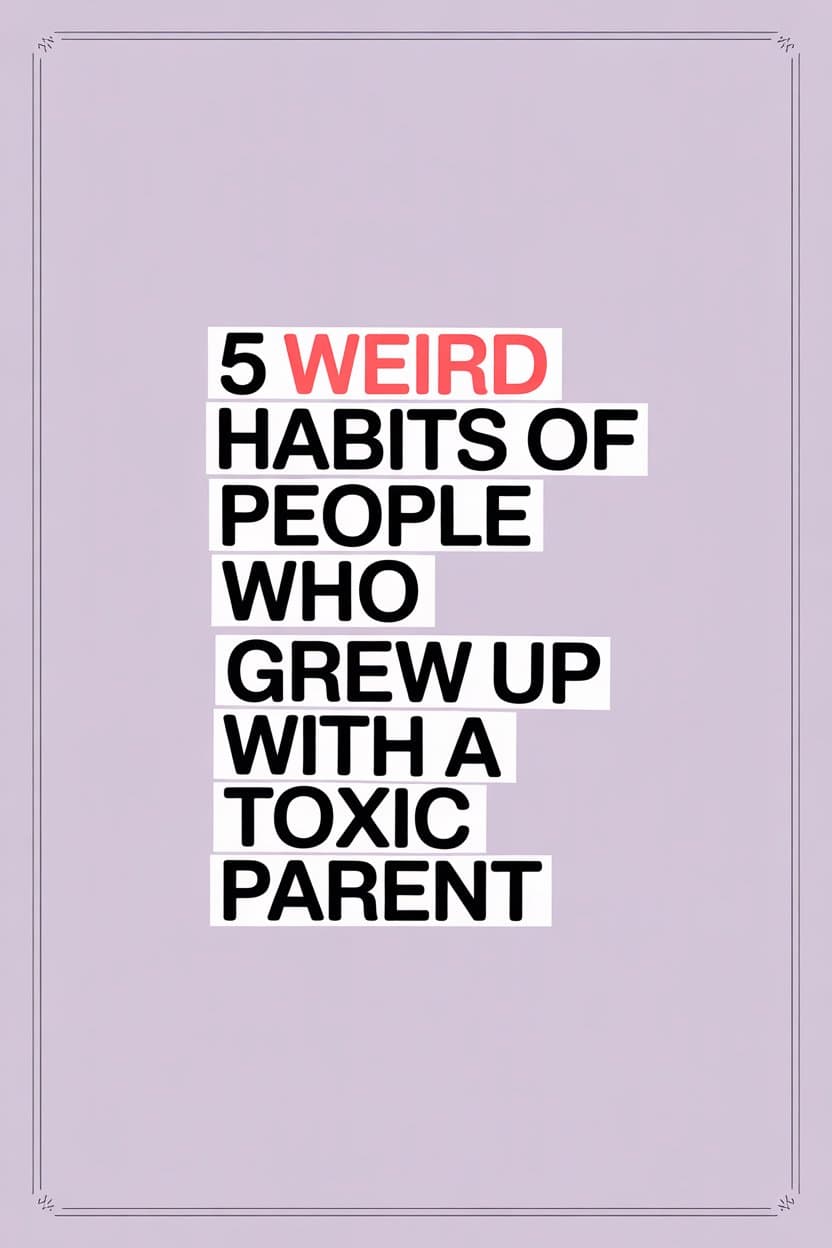If you survived childhood with a toxic parent, congratulations on your unofficial PhD in emotional gymnastics—it’s not exactly a qualification anyone asks for, but here we are.
The fallout? Some truly odd habits that stick around longer than the smell of burnt popcorn.
Here’s a peek at five of the biggest quirks you might recognize in yourself—or, you know, that “friend” you’re totally asking for.
1. Constantly Apologizing for Existing
Ever met someone who says “sorry” more than they say their own name? There’s a decent chance they had a parent whose favorite hobby was making them feel like a walking inconvenience.
Toxic parents have a special talent for convincing their kids that everything is their fault. Spilled milk? Your bad. Rain on sports day? Must have been your negative energy.
Grown-up children of these folks often can’t help but apologize for things that have absolutely nothing to do with them—bumping into a chair, or for taking up space on the couch (or, let’s be honest, existing).
The fix? Awareness is the first tiny, awkward step. Next time that “sorry” slips out, ask yourself: did I actually do something wrong, or am I just running on autopilot from years gone by?
Practice swapping “sorry” for “thank you”—as in, “Thank you for waiting” instead of “Sorry I’m late.” It’s weird at first, but so is pineapple on pizza, and plenty of people grew to love that.
2. Overthinking Every Single Conversation
Growing up with a toxic parent means you probably became fluent in translating tone, facial expressions, and the subtle art of mind-reading.
One misplaced sigh, and suddenly you’re dissecting what it all means—are they mad, sad, plotting your doom?
This hypervigilance doesn’t just vanish when you leave home. It sneaks into friendships, romances, even work chats, turning every “Okay” text into a Choose Your Own Anxiety Adventure.
What helps? Reality-checking your thoughts. When you catch yourself replaying a conversation, stop and ask, “Is there any actual evidence this person is upset?” Better yet, just ask them.
Most people will appreciate your honesty, and some might even stop using “K” as a reply (well, maybe).
3. Saying Yes When You Mean No
Boundaries with a toxic parent? Hilarious. “No” was practically a swear word, and saying it guaranteed a guilt trip longer than a Ryanair flight.
That’s why grown-up you might find it impossible to refuse anything—helping a co-worker move, lending money you don’t have, going to a party you’d rather eat glass than attend. It’s not just people-pleasing; it’s muscle memory from years of trying to avoid a parent’s wrath.
Tiny acts of rebellion can be a good start. Try saying no to something low-stakes, like refusing an extra helping of potato salad. Celebrate the victory. Then move on to bigger things.
Your time, energy, and peace are precious—not a free-for-all buffet.
4. Becoming a Master at Self-Deprecation
A little self-deprecating humor never hurt anyone. Unless, of course, it’s masking the belief that you’re fundamentally unworthy—a belief often planted by parents who couldn’t say “I love you” without a qualifier (or, you know, at all).
If you grew up hearing more critiques than compliments, you might preemptively make fun of yourself to soften the blow. Beat them to the punchline, right? Except now the only person landing punches is… you.
Give yourself a break. Challenge the mean inner monologue. Try speaking to yourself like you would to your best mate after a rough day.
If you wouldn’t call them a useless lump, why do it to yourself? And if positive affirmations make you cringe, start small: “Maybe I don’t suck at everything” is a perfectly acceptable mantra.
5. Trust Issues That Would Make a Spy Paranoid
Toxic parents aren’t exactly known for being consistent or trustworthy. One day you get praised; the next, you’re getting the silent treatment for looking at them “the wrong way.” It trains you to trust… well, no one.
Relationships as an adult can feel like playing Minesweeper on hard mode. You might keep people at arm’s length or expect every nice gesture to be followed by a hidden catch. Trusting someone just feels unsafe.
Small steps are the only way forward. Try letting someone see a little more of the real you, even if it’s just admitting you have a weird obsession with reality TV.
The people worth your time will stick around—and won’t weaponize your secrets. Each positive experience proves your childhood wasn’t a crystal ball; you get to write your own script now.
Growing Out of Old Coping Habits
Surviving a toxic parent leaves you with a grab bag of oddball tendencies, but the story doesn’t have to end with apologizing to your lamp or practicing conversations in your bathroom mirror.
Spotting these habits is step one. Getting curious—and maybe a little annoyed—about where they came from is step two. And step three? Experiment with new ways of being, even if it feels like wearing someone else’s shoes at first.
Growth is awkward, but so was puberty, and you made it through that.
And if all else fails, there’s always therapy…and the comfort of knowing you’re not the only one who’s ever said sorry to a piece of furniture.


